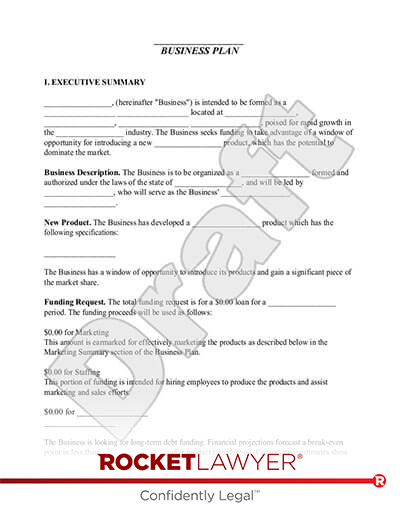How do I prepare to launch my business?
NASA did not launch a rocket ship to take men to the moon until it had done years of planning and testing. In 1962, President John F. Kennedy gave his "Moon speech" and set the goal of landing people on the moon. The project began with asking questions and breaking down the task into smaller simple steps. NASA set milestones, lined up the right people both internally and externally, and stayed focused to make the historic 1969 moonwalk happen.
When it comes to launching a new business, breaking down your Business Plan into smaller steps and lining up the right resources and team, as was done with the Apollo program, can make all the difference. A strong Business Plan can help you obtain financing, open bank accounts, and keep you on track to propel your business to success.
How do I keep my business going and growing?
It is a good idea to remember that every successful venture faces obstacles. The Apollo program suffered major setbacks before Apollo 11 landed and allowed Neil Armstrong and Buzz Aldrin to walk on the moon. In January 1967, the program suffered its worst disaster. Three astronauts died after something went wrong during a launchpad test.
The other astronauts and NASA did not let this tragic loss halt the pursuit of their goal. Instead, after mourning and paying respects, they continued working toward the shared dream of putting a man on the moon.
It is common for business owners to face obstacles as they get started, operate their business, or start on a path to grow. From supply chain issues to high employee turnover, small businesses may want to be ready for anything. When facing obstacles, it helps to remind yourself why you started the business in the first place. It can also be helpful to:
- Celebrate the small wins.
- Learn how to let others handle some tasks for you.
- Set realistic goals for the business.
- Let your team know you value their work.
Even when Neil Armstrong almost died in May 1968, he did not give up, but he also knew when to take emergency corrective action. He was test-flying a lunar-landing research vehicle when leaking propellant shut down the flight controls. The vehicle fell to Earth, hit the ground, and exploded into a fiery ball. Armstrong ejected and deployed his parachute.
While there may not be an eject button for small business owners, having a backup plan, or exit path, is always a good idea.
What do I do after reaching my original goal?
On July 24, 1969, the Apollo 11 and its crew splashed down near Hawaii. John F. Kennedy's dream had come true: Men from Earth walked on the moon and returned safely home. This was not the end, though. Over the next few months, there were six more trips to the moon. A total of 12 men walked on the moon during that time. When the Apollo mission ended in 1970, NASA set new goals for exploring space.
Just like NASA, when you reach your goal and your business is doing well, you may want to consider taking some time to enjoy it. Replicate your success again and again, and celebrate. Then, when you are ready, you might think about setting new goals and making the plan to achieve those new goals.
How do I scale my business?
After the successful moon landing, NASA proved what it was capable of. This helped it grow and to secure its future funding. To scale your business, first, make sure you have the right resources and team to handle growth. If you have more orders or customers than you can handle, it may be time to expand.
Next, consider how you might meet the demands from your customers. This may require:
- Hiring more staff.
- Moving to a larger location.
- Outsourcing or getting external help.
These all cost money and take time to implement, however, may lead to increased revenues and profits when done right. Additionally, when small businesses grow, small business owners may want to consider incorporating their business. Incorporating, or forming an LLC, can protect a business owner's personal assets in case something goes wrong, or the business falls into debt that it cannot afford.
It might also be time to establish your brand nationally and register a federal trademark to protect your business's reputation from competitors who may try to copy you.
If you have questions about launching your business and scaling it for success, reach out to a Rocket Lawyer network attorney for affordable legal advice or download the Rocket Lawyer Mobile App.
This article contains general legal information and does not contain legal advice. Rocket Lawyer is not a law firm or a substitute for an attorney or law firm. The law is complex and changes often. For legal advice, please ask a lawyer.
